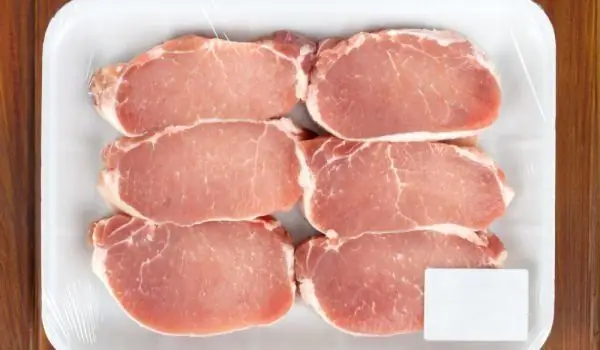2025 Author: Jasmine Walkman | [email protected]. Last modified: 2025-01-23 10:18
The final results of the voting for the most preferred European dish showed that the Bulgarian Shopska salad has become the most liked European dish.
The initiative of the European Parliament - The Taste of Europe, pitted against each other the most typical national dishes of European cuisine. The vote took place on the social network Facebook page of the European Parliament.
The Bulgarian Shopska salad has collected the most likes - 19,200, which put our salad in the honorable first place.
After the Shopska salad, the Lithuanian rose soup came next, and the Romanian cabbage leaves came in third.
All the inhabitants of the Old Continent could vote on the European Parliament's website, and the idea of Taste of Europe was to show the variety of delicious recipes on the continent.
The Shopska salad led throughout the campaign, and the Lithuanian cold soup followed closely.
The recipe for our national salad was also published on the Facebook page, so that every European can prepare it at home.

Although Shopska salad is quite popular in our country as a national dish, the truth is that it is not taken from the traditional Bulgarian cuisine, but was created by the master chefs of Balkantourist in the mid-50s. The Shopska salad acquired its final look in the 60's.
The selected products - tomatoes, cheese, cucumbers, onions and peppers, were purposefully chosen to recreate the colors of our national flag and to inspire patriotism in Bulgarians.
In Italy, similar salads are also prepared, which include mozzarella, tomatoes, basil and avocados and are arranged as their national flag.
Due to the popularity of the Shopska salad, some of Bulgaria's neighboring countries (such as Serbia and Macedonia) have repeatedly stated that the dish comes from their national cuisines.
Shopska salad is very popular in both the Czech Republic and Slovakia, as the Czechs prefer to eat it without onions and peppers, and in Slovakia they add sugar to the salad.
Recommended:
Which Meat Became Cheaper And Which Became More Expensive In One Year

Pork is the product that has fallen the most drastically in the last year, according to data from the Center for Agricultural Research. Prices per kilogram fell by an average of 20% over the same period in 2017. In March and April this year, the average price per carcass weight was BGN 2.
The Pickle, Which Became A Hit This Fall

Pickles are a favorite of many of us, but their flawless preparation requires experience, flair and curiosity. The mastery of the preparation of a nice pickle is transmitted in families, settlements and among acquaintances. There are different types of pickles, which are typical for different regions and bear their characteristic names - Royal pickle, hunting pickle and others.
And Melons Became GMOs

In the times we live in, we can less and less often find in the markets products that do not contain preservatives or other obscure additives. However, GMO foods are especially dangerous because there is no way to recognize them. In Bulgaria, no one obliges producers of GMO foods to put on the labels of their products that they are genetically modified.
Is The Shopska Salad Shopska?

Shopska salad is the undisputed leader of the Bulgarian national cuisine. Its balanced taste of fresh tomatoes, cucumbers, onions, peppers and grated cheese tempts us every day and everywhere. And not just us. The Shopska salad is probably the first thing that foreigners learn in Bulgaria and about Bulgaria, which they spell in restaurants or in TV interviews and which they do not forget long after they leave.
BBC: Food In Eastern Europe Is Of Much Lower Quality Than In Western Europe

A BBC study shows that there is a huge difference between the content of goods in Western and Eastern Europe. The packaging looks the same, but the taste is radically different. Such a difference has long been suspected in the Czech Republic and Hungary, where consumers say food in neighboring Germany and Austria is of much higher quality than in their home markets.

